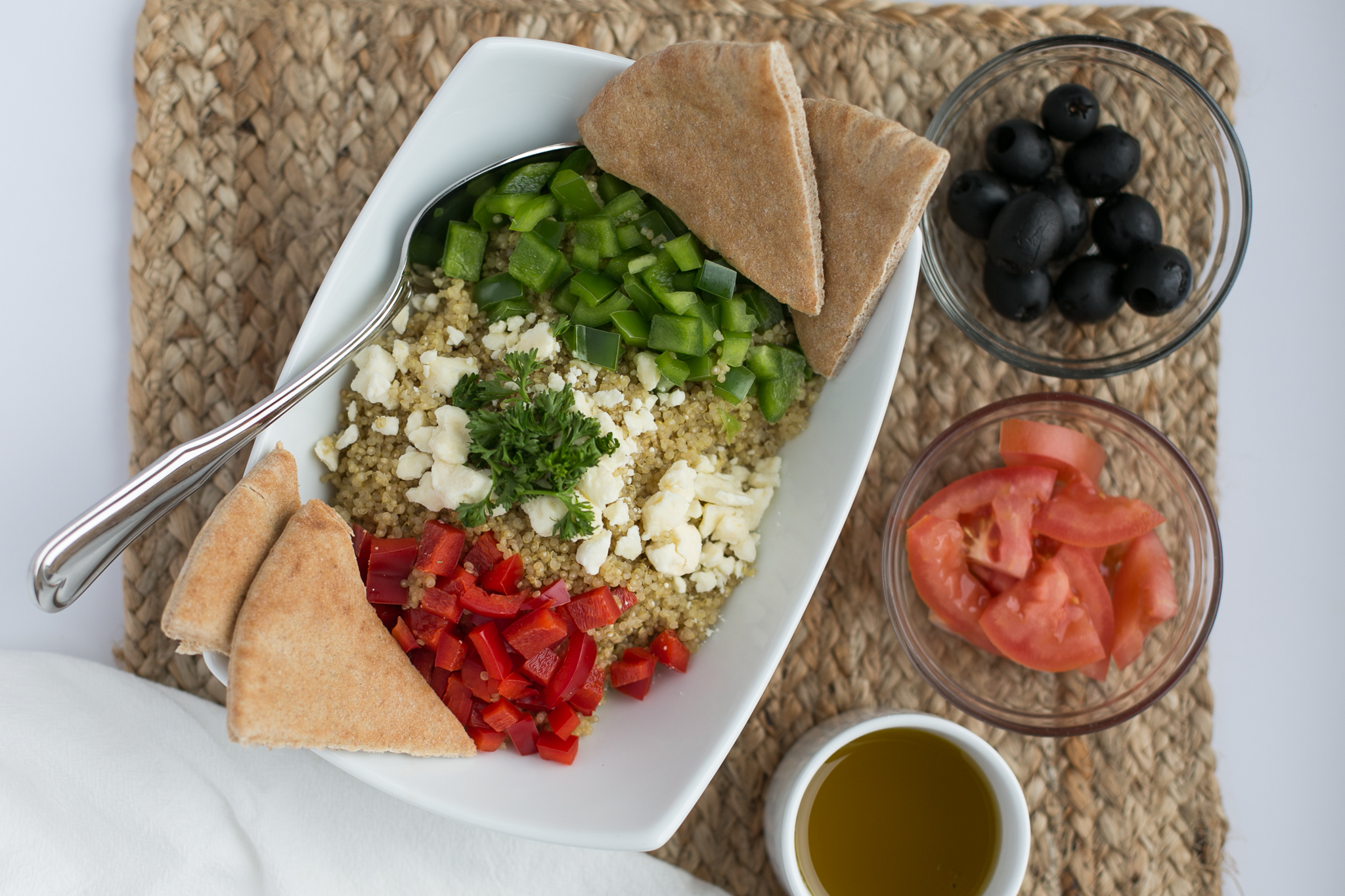
by Stephanie Margolis, R.D.
Updated July 18, 2022
While there are many lifestyle things we can do to prevent or limit our exposure to germs, I’d be remiss to not address the important role our diet has on our immunity.
Immunity and Food
Boosting our immunity from the inside out is critical in feeling our best. While there is no one supplement or food that will cure or prevent disease, we do know when people eat diets higher in processed foods and fat (saturated and trans fats specifically) that are also lower in fresh produce, lean meats, and good carbs the short term health suffers. Our immune system is this invisible force field around us that needs fuel to continue to do its job. We know there are key nutrients that promote the growth and function of immune cells. These are:
- Vitamin C — Probably the most well-known immune booster with lots of science behind it. It is known to increase white blood cell production which helps increase immunity. Studies have shown Vitamin C not only helps prevent infections but can also help you get over your illness faster. Found in: citrus fruits and colorful fruits and veggies
- Vitamin D — Promotes immunity and those who are Vitamin D deficient are often found to be more susceptible to infections. Found in: sunlight, salmon, sardines, red meat, and fortified foods like breakfast cereals.
- Zinc — Known as an antioxidant and anti-inflammatory, but also helps those T helper cells you may remember from high school biology. Found in: Oysters, beans, nuts, whole grains, and dairy products.
- Selenium — Reduces oxidative stress and provides protection against some pathogens. Found in: meat, eggs, beans, and nuts.
- Iron — Iron does a lot in our system, however, specific to immunity it provides oxidation-reduction properties. Found in: meat, beans, nuts, leafy greens.
- Protein, specifically glutamine — Is an essential amino-acid and works as a building block in the body, especially within the immune system. Found in: meat, chicken, beans, carrots, spinach, beets, and fermented foods like miso.
What Should I Eat to Support My Immune System?
The science is great and all but you just want to know what to eat, I got you. When making your grocery list think color … some of the most colorful things are the best for your immune system. The list can be long but I’m going to focus on the top 5 whole foods that need to be in your cart.
- Citrus fruits — This is for the Vitamin C powerhouse nutrient found in these foods. The recommended daily allowance (RDA) for Vitamin C is 75 mg. Just one orange at breakfast gives you 45mg – 9am and you’re over half-way there! Grapefruit, clementines, lemons, and limes all go here. You can also find supplements, but if you are eating fruits and veggies you are likely getting enough. Keep in mind Vitamin C does have a tolerable upper limit of 2000mg per day, so mega-dosing won’t do you any good and may actually have a negative impact. Also, enjoy these citrus fruits whole, when they are juiced they can be higher in sugar and impact your blood glucose levels.
- Red bell peppers — Not only do you get 127 mg of Vitamin C in one medium red bell pepper, but you also get beta-carotene (which converts to Vitamin A) that helps boost your immune system while keeping your eyes and skin healthy. I remember doing an in-depth research project on Vitamin A in school (yep, that’s RD life for you!). I learned that ancient cultures would take animal liver (super high Vitamin A content) and squeeze the fluids straight into their eyes to keep them healthy. Thank goodness we’ve progressed from that! Moral of this (gross?) story is to say we’ve known for a long time that Vitamin A helps heal our bodies. My kids’ favorite lunch side is the mini bell peppers in the produce aisle, I like them because you don’t have to remove the seeds, the kids can simply bite into them or you just need to cut off the top and they’re ready to go!
- Broccoli and spinach — Both green gems are high in Vitamin C as well as antioxidants. When we talk about specific nutrients above reducing oxidative-stress this is the job of antioxidants… protecting and repairing the damage done to the body on the regular. We also know it’s not just what you’re eating but how you prepare them. Steaming or lightly cooking these foods can make the nutrients more bioavailable without cooking the nutrients out of them. Spinach alone provides Vitamin A, Vitamin C, and glutamine.
- Yogurt — I’ve covered yogurt before and the benefits it has for your gut, but you may not have known it is a bonus for your immunity. This is one place you can find your glutamine mentioned above, along with those live-active probiotic cultures. Yogurt is also full of other immune boosters like zinc and selenium.
Lifestyle Choices for Boosted Immune Function
As with anything nutrition-related you have to take into account your entire lifestyle. Strike a balance with regular exercise, stress reduction, getting enough sleep, etc.

